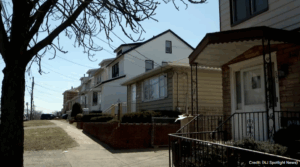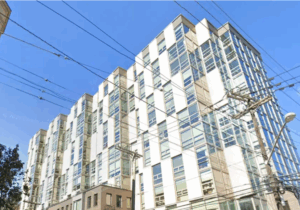
Mikie Sherrill wants to convert New Jersey’s underused office parks and strip malls to affordable homes
Garden State residents spend more than 30% of their income on housing. The newly elected governor wants to make the state more affordable.

Garden State residents spend more than 30% of their income on housing. The newly elected governor wants to make the state more affordable.

Finding an affordable place to live in New Jersey has become nearly impossible for too many families.

Local officials looking to reduce homelessness in their towns would be able to charge new fees to fund affordable housing, rental vouchers, and hotel stays under legislation a New Jersey Assembly panel unanimously advanced Thursday.

Unlike a lot of increasingly unaffordable towns in New Jersey, Maplewood and South Orange have been on board with adding affordable housing – working to meet or exceed the state-mandated Fair Share Housing obligations, because municipal leaders see it not only as a moral obligation, but also as an equity issue.

It’s time for an update on legal cases involving affordable housing in Princeton and central New Jersey. As we reported last week, a Mercer County Superior Court judge dismissed with prejudice the suit by the Princeton Coalition for Responsible Development against the municipality and the Princeton Planning Board challenging the redevelopment plan for the 238-unit apartment project on the former Princeton Seminary campus on Stockton Street.

A New Jersey Superior Court judge has ended – at least for now — an effort by three dozen municipalities to overturn the state’s new affordable housing process, whose goal is to add thousands more low-cost houses in the state.

Prospective renters aiming to secure an apartment in a group of luxury buildings in Hoboken, New Jersey, will find offerings like kitchens with granite countertops and new energy-efficient appliances, wall-to-wall pristine hardwood floors, terraces outside their windows, perhaps a pool deck right outside their door, and even a dog grooming station.

Fifty years ago, the New Jersey Supreme Court created a groundbreaking affordable housing framework. A new law gives it real teeth

A 2024 law codifying the state’s Mount Laurel doctrine is speeding up construction and shifting local politics, even as lawsuits linger.